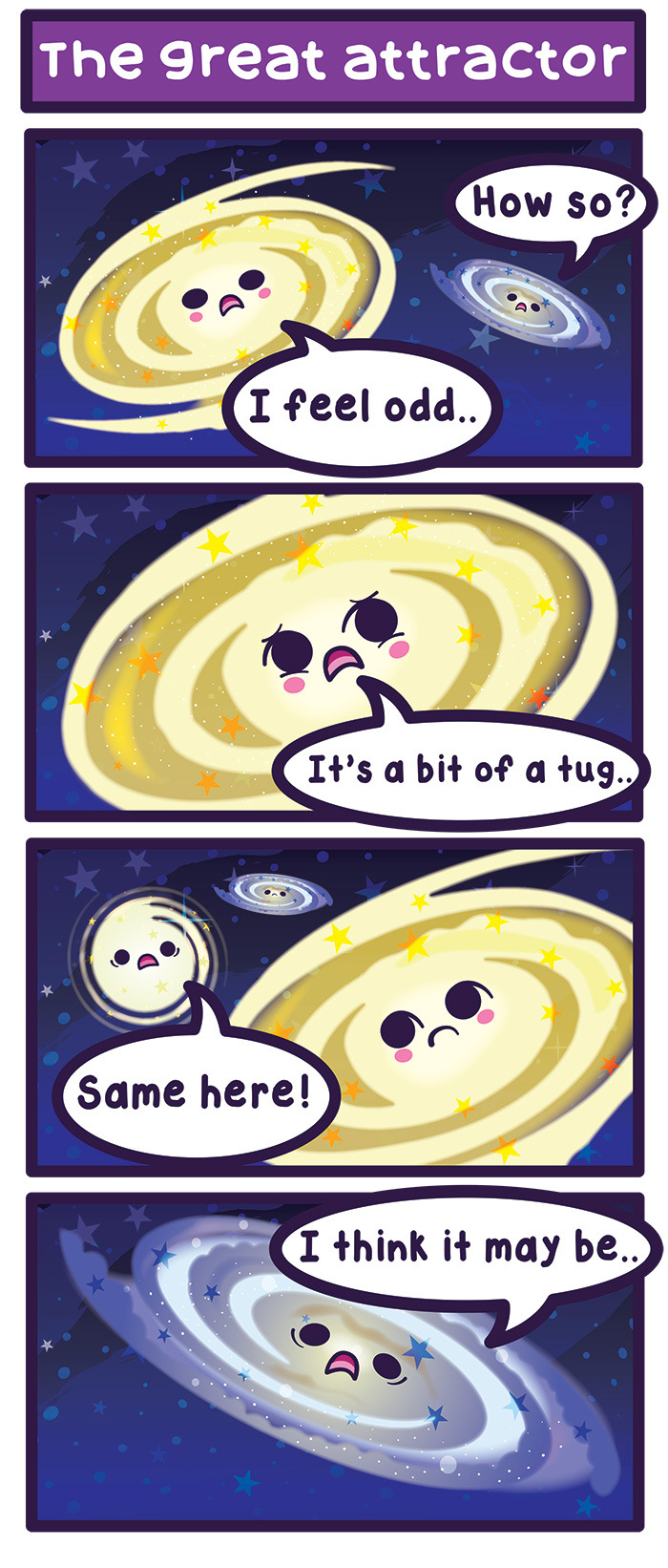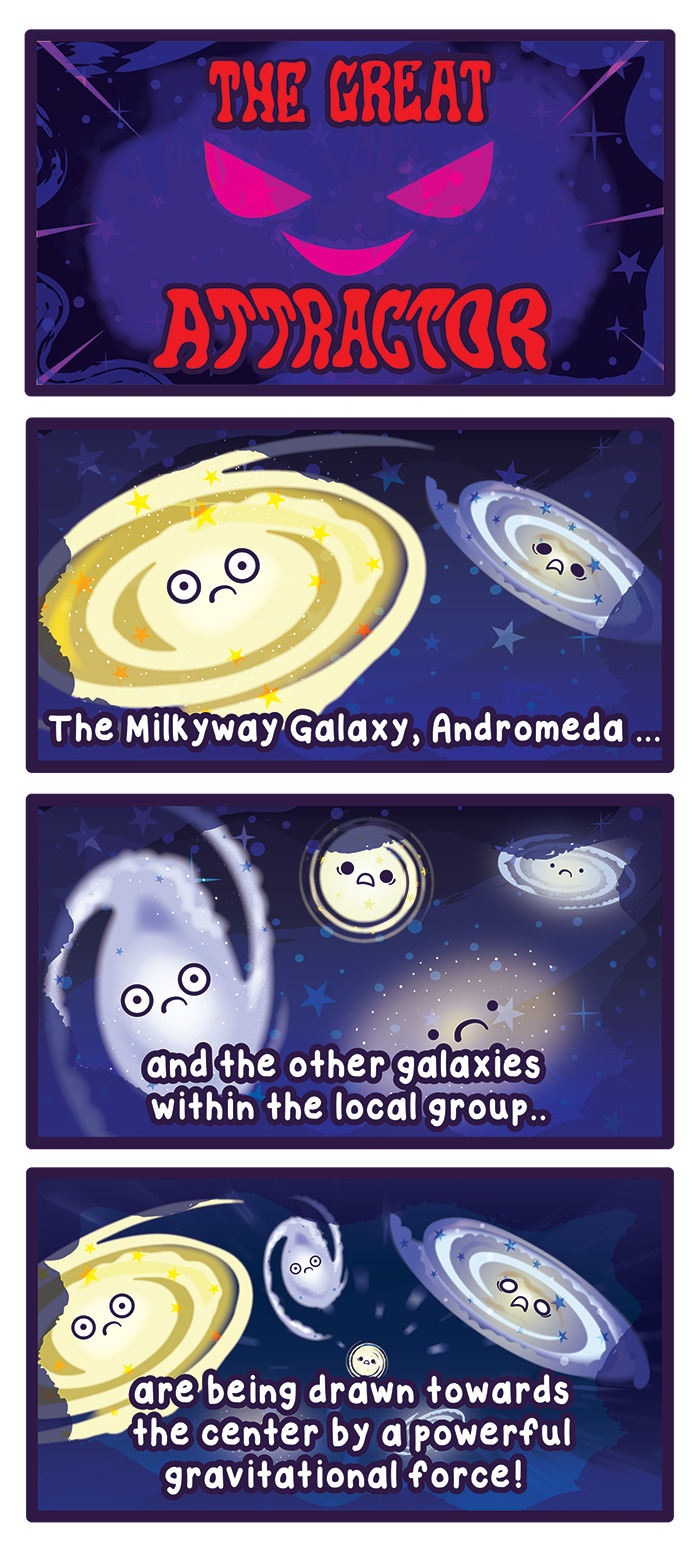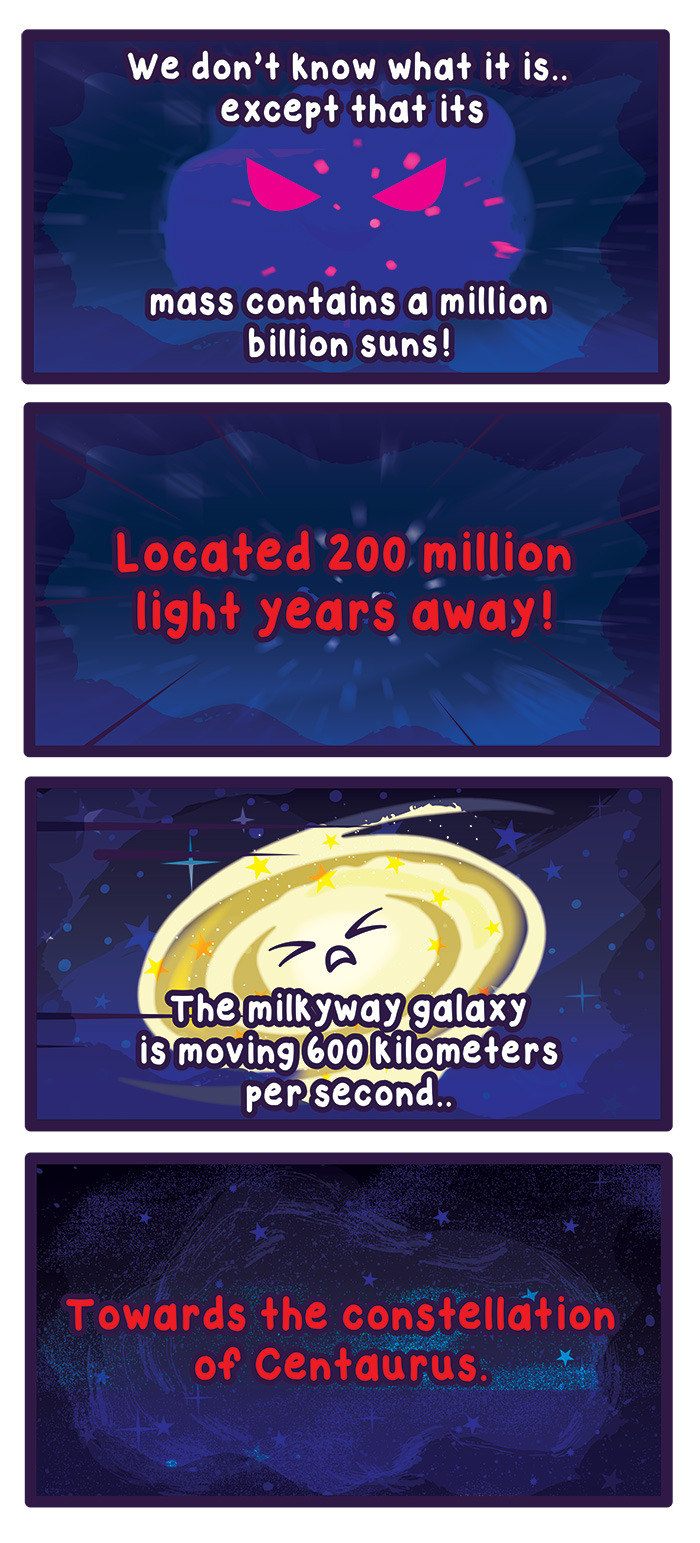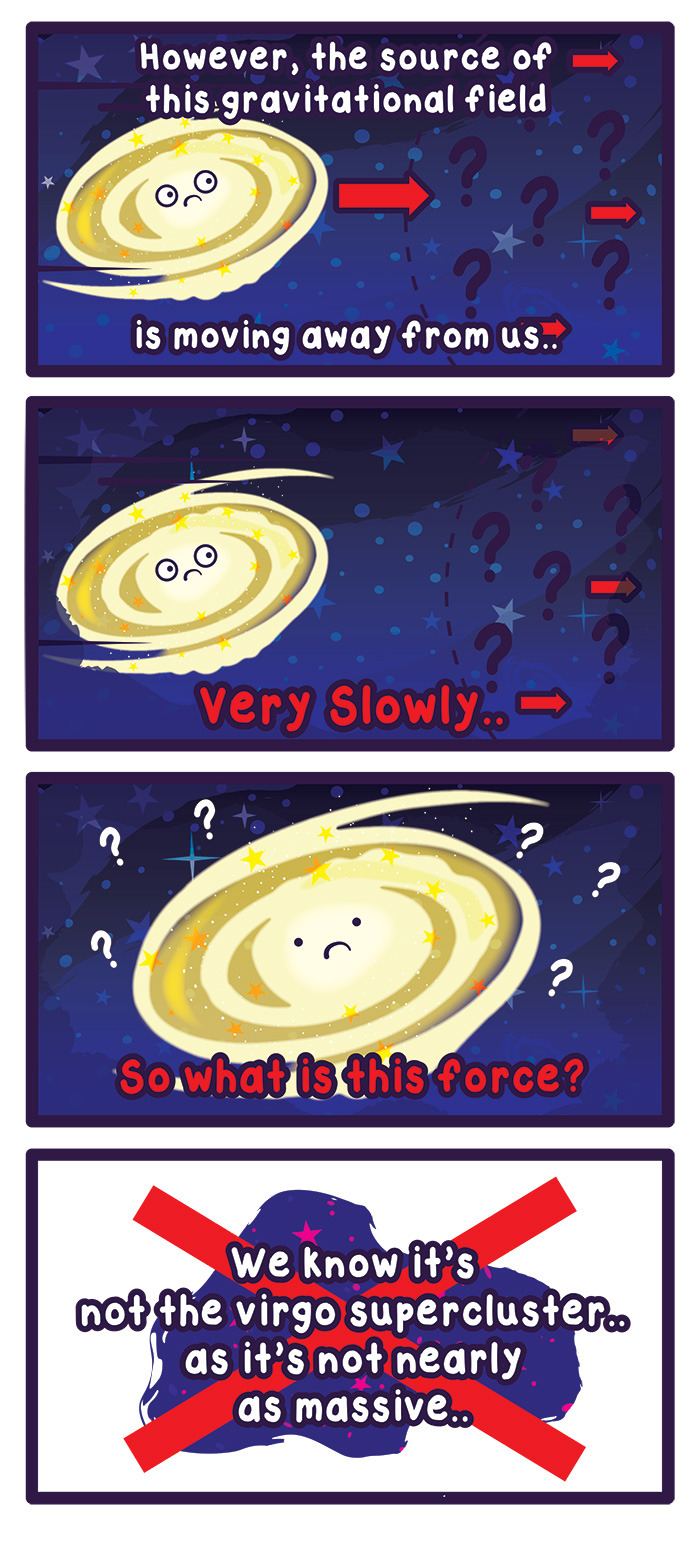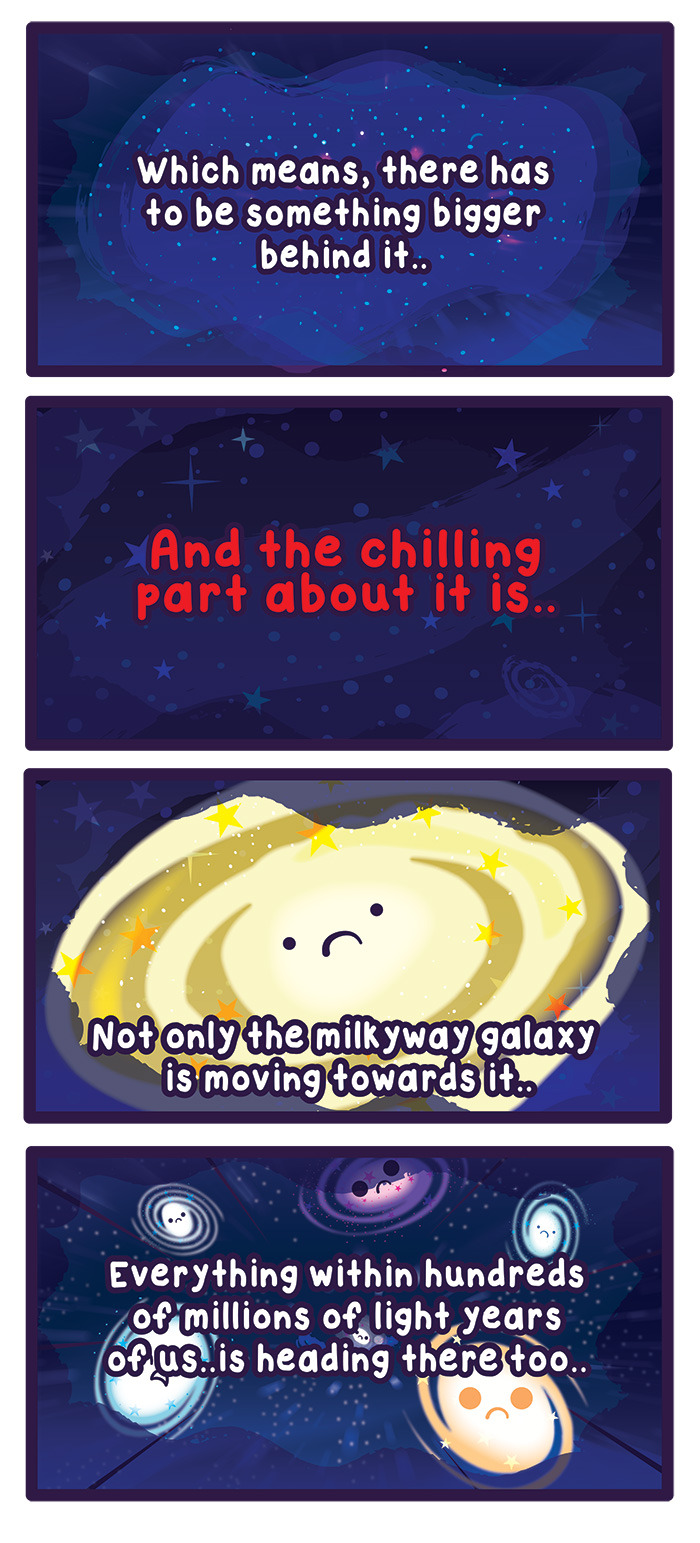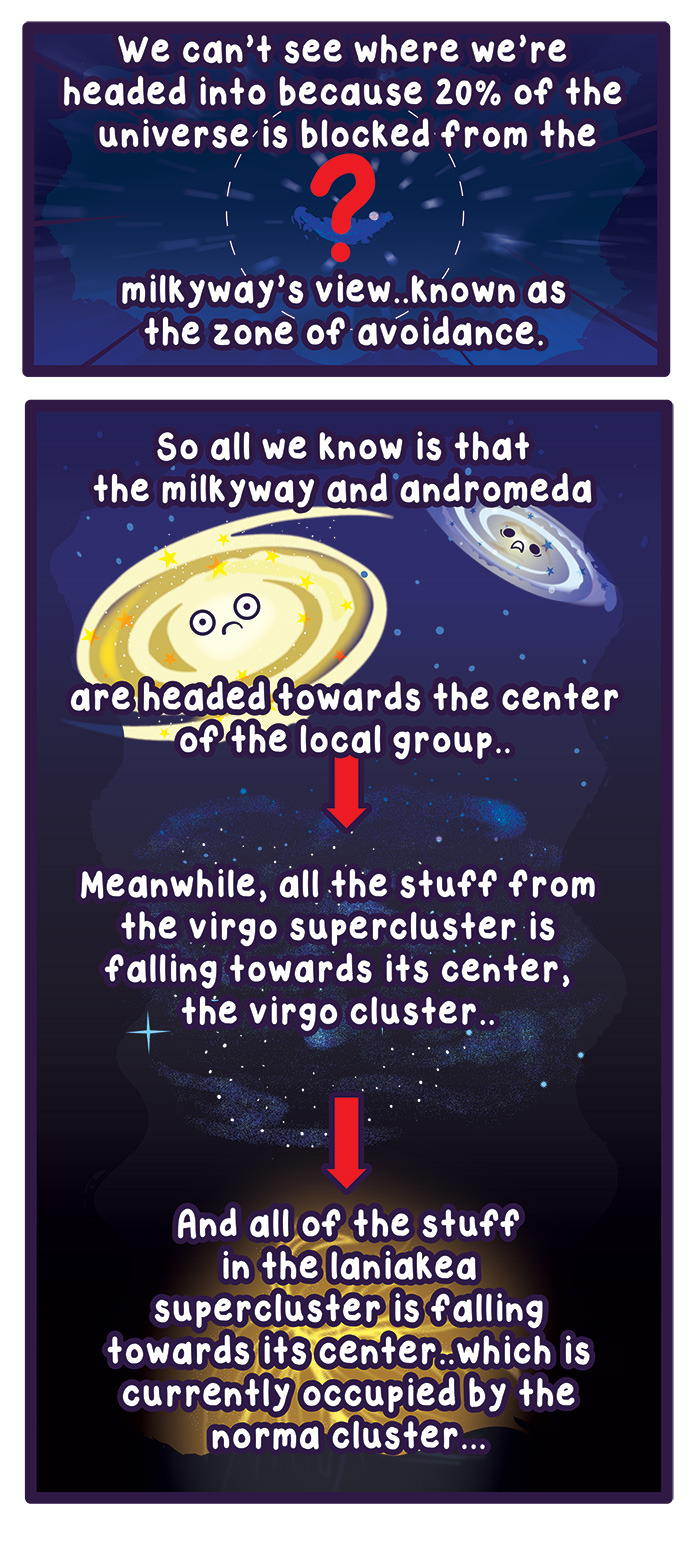Important Things I Learned While Studying Astrophysics
Important things I learned while studying Astrophysics
During presentations, 90% of the people won’t know anything about your topic, no one will notice minor mistakes
During presentations, 75% of the people won’t even listen to you
Don’t compare yourself to others. There will always be someone smarter than you, and the people you think of as smart, think of themselves as really dumb
The profs, the TAs and everyone else is also just a human. They are not perfect and have other things to do than run after and care for you.
Take care of your own shit. Always
If you work in groups, don’t be selfish. Just because you think you dont need to hand in that last paper because your grade is secure anyway, it does not mean that the others feel the same. Dont pull them down because you are lazy
If it seems too easy, you’re doing it wrong
Just because a person seems to sound convincing, check their data, they’ve usually ignored gravity or temperatures
Knowing professors personally can be both good and bad, good when it comes to jobs and favours, bad when it comes to oral exams
Buying books is useless when you can just get them from the library and sit on them for a year. Especially when there are no textbooks, but only specific literature costing around 600 € per book
Reading papers is the way to go. Always.
When showing your work/thesis, try to explain the process as simple as possible, while at the same time make your work look as hard and complicated as possible (Quote from a guy I work with: “It looks too easy for the public!”)
Learn how to work with others. You won’t get far on your own.
If English is not your native language, learn it! You will need it
Your humour will consist of science jokes and math references. Good luck making friends in the real world
More Posts from Purpletelescope and Others
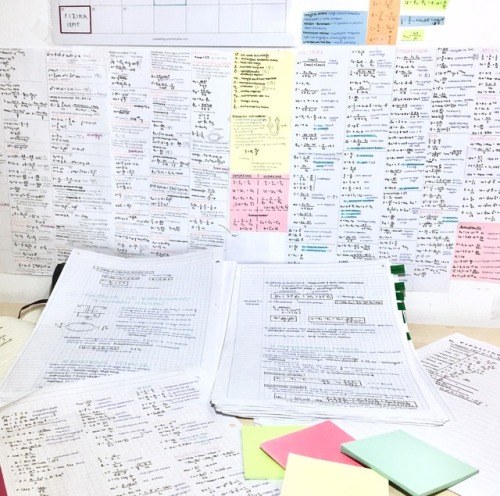
8 / 1 / 2018 //
Tomorrow I start my finals month and let’s just say physics midterm isn’t really the thing I want to start off with. but this is my life/desk situation right now, flooded with tons of formulas that just won’t go in my head easily:(






helpful links:
the one productivity system you need: time vs energy management
eisenhower matrix
similiar way to prioritize tasks
flexible time blocking
You know what. I’m starting a new aesthetic, population me.
Romantic Science, AKA Dark Academia for STEM people.
Thrifting a lab coat and embroidering it with your initials and a little insignia, whose significance is known to you and your lab partner only
Watching The Theory of Everything and The Imitation Game and Hidden Figures and basically every movie about historical scientists and mathematicians you can find
Decorating your desk with old slide rules and vintage lab equipment. Your prize possession is a set of vintage lenses you found at a thrift store
Wanting an articulated human skeleton far, far too much
Getting a set of (brand new, NOT thrifted, be safe ppl) beakers to drink from, and putting them directly onto your stovetop to boil water for tea or coffee, because borosilicate glass can survive anything.
Secretly relating far too much to Henry Jekyll and Victor Frankenstein, because you too want to do a gay little science experiment that challenges god.
Thunderstorms and late nights in the lab, the light of the Bunsen burner glistening off of your flasks and scribbled chalkboard equations
Papering your walls with vintage scientific diagrams; even if you know that our understanding of the world has evolved since they were made, looking back at scientific history is amazing
Writing code late at night and feeling, in some metaphysical way, as though Ada Lovelace herself is with you in spirit
Being far, FAR too obsessed with the concept of emergent ai sentience and how it has the potential to be Frankenstein irl
Looking through a telescope on clear nights, whispering the names of the constellations and stars, painting a star chart on your ceiling in a burst of creative inspiration
Collecting and mounting samples from everywhere you can think of to pore over in an antique microscope
Bringing a field journal wherever you go, learning how to draw and label botanical samples, preserving plants and flowers for study later
Dreaming of what undiscovered mysteries lie in the deepest depths of the sea, feeling the thrill of discovery whenever you learn about a new species and one day hoping to discover one yourself
Just. Romanticise STEM.
Bonus post: Thesis writing.
This post will be a combination of tips and tricks I have received from numerous sources, with the majority coming from Shinton Consulting and STREAM IDC staff.
The big T
If you’re anything like me, just the word ‘thesis’ can instill a sense of dread in me. However, the best way to deal with a phobia is to face it head on, so let’s do just that, both in a literal and metaphorical sense.
What a thesis is and what to expect…
Writing a thesis could take anywhere between four weeks to a whole year, and sometimes even longer! The worst thing you can do is compare your progress to that of others; setting a benchmark is one thing, but beating yourself into a panicked pulp because you haven’t written as many chapters as a fellow PhD/EngD won’t do you any good. The best thing you can do is have regular discussions with your supervisors on how long your thesis will take and plan accordingly. 🕖
Your thesis has to be fit for purpose (that is to pass), which means that it has to:
Satisfy the expectations of your institution and industry sponsor (if applicable).
How did you solve the problem that was proposed to you?
Contain material which presents a unified body of work that could reasonably be achieved on the basis of three years’ postgraduate study and research.
Show you have done the work and impress your examiners.
Allow your examiners to confirm that the thesis is an original work, which makes a significant contribution to the field, including material worthy of publication.
Research your examiners and quote them where possible, especially of they’re relevant to your field.
Show adequate knowledge of the field of study and relevant literature.
Make sure you read all of the key papers in your field.
What were the gaps in knowledge?
The ‘references’ section is very important as this sets the scene and examiners will read this. BUT, don’t have too many references.
Demonstrate critical judgement with regard to both the candidate’s work and that of other scholars in the same general field.
Compare approaches and conclusions of others.
Note potential conflicts of interest.
Why did you use this method/approach?
Is your interpretation the only possible explanation?
Be presented in a clear, consistent, concise, and accessible format.
Make your examiners lives easier.
Make your viva as pleasant as can be!
Basically, you need to know why your project was important, be able to explain the key work that has already been done in the area and how it relates to your research aim. You should then be able to explain what you have done during your research and how this contributes to your field.
Note: Keep checking university regulations! Each university should have their own code of practice for supervisors and research students, which will look something like this.
Picture: A short summary of the above. Source: Tumblr.

Planning and writing
I’m not going to lie to you, it is not going to be easy. I have only just embarked on the journey myself and am already overwhelmed. However, with the right preparation, coping mechanisms in place, and a tremendous amount of self-discipline, we will get through. ☕
Getting started
You need to practice writing. That’s as simple as advice gets.
You need to practice reading other PhD/EngD theses, mainly to understand what to expect, and to experience what being the audience for a thesis is like.
Create a thesis plan…
To start the mammoth task that is thesis writing, it needs to be fully understood and broken down into manageable chunks.
Make a plan (perhaps based on the table of contents of another thesis) of all the sections and chapters in the thesis.
Then break these into sections and keep breaking it down until you are almost at the paragraph level.
Now you can start writing!
Where to start the actual writing?
Start with the most comfortable chapter, such as a previously published paper, a set of results that are straightforward and can be easily explained, methodology/methods, etc.
Create a storyboard for you thesis and write as if you are telling that story.
If you’re not sure what comes next, refer to previous theses and back to your plan and storyboard.
Be ready to amend the plan for future chapters as each is completed and you become more aware of what the thesis must contain.
Remember: THINKING IS HARD, WRITING IS EASIER. 💭
Organisation
Develop and maintain a logical filing system.
Improve your back up technique; if it’s not saved in 3+ locations, it is not safely backed up.
Back up every day.
Never overwrite previous documents, just make many versions. It’s not worth the risk of losing a valuable piece of work from a copy and paste error.
Copy any key parts from your lab/note/field books as these can get lost/damaged.
Keep a file/folder of thoughts, references, etc. that you are not including in your thesis; these may be useful to refer back to for ideas and information.
Effective writing
Establish a routine, don’t be distracted, take breaks.
Set clear and realistic goals for each week/day.
A GANTT chart is very good for this; use it to keep on track and measure progress.
You just gotta start. The hardest part is the beginning.
Don’t stall on details, walk away for a short break to clear your mind.
Get formatting correct from the start (check your code of practice/regulations).
Be consistent with references.
Seek help from the experts - supervisors, postdocs, online sources/training programmes etc.
Create SMART objectives for your writing process:
Specific - e.g. “I will complete chapter 3/collate all diagrams” rather than “I will make good progress”.
Measurable - e.g. “I will write 4 pages today” not “I will try to write as much as I can”.
Achievable - e.g. “I will complete the first draft for my supervisor” not “I will get it perfect before he/she sees it”.
Realistic - e.g. “I will complete the introduction today” not “I will complete a chapter a week”.
Time - it can be useful to set yourself deadlines e.g. tell your supervisor you will hand in a draft on a certain day - that way you are sure to have it done.
Finally, find a balance between being tough with yourself whilst protecting your well-being the best you can. I wrote a post a little while ago that covers managing your mental health during a PhD. Read it here.
GIF: Anna Kendrick dishing out some top advice. Source: Tumblr.

A few more tips
Supervisor management
Establish what you want to cover in each meeting.
Keep a record of the outcomes and actions from those meetings.
Make your supervisors lives easy; they’re very busy humans.
They are unlikely to judge work unless it is presented completely (i.e. fully written with tables, figures, etc.).
Give them a neat, complete version of a chapter at a time (proof-read thoroughly and spell-checked).
It is in your supervisors interest for you to complete in good time; they are experts and will offer a lot of support.
To summarise, a good thesis:
Has an appreciation of what came before.
Focuses on the interesting and important.
Is well reasoned.
Will change the way people think.
Will teach your supervisors something.
Has publishable results.
Is logical in presentation, analysis, and arguments.
Is well illustrated with tables, figures, graphs, summary flow charts etc.
It is worth spending a lot of time on these.
Is written without grammatical and spelling errors.
Has an appreciation of what comes next.
I hope that the above was helpful! There are many resources out there, so get exploring if you need more advice!
I’ll soon be writing a post on how to survive your viva! So, watch this space. ✨
Photo: Make this your phone/desktop/laptop/everything background when you’re writing, I know I will! Source: Tumblr.


an educational graphic about critical thinking for tumnblr
6 Small But Powerful Study Habits
Many students—including myself at one point—tend to think that making big strides towards their academic goals means also making drastic changes to how they’re used to approaching academics and studying; however, making big strides towards your goals oftentimes only requires that you make small changes in your day-to-day behavior. For instance, you can replace small unhelpful habits (like checking social media between classes) with small helpful habits (like reviewing notes or flashcards between classes). These little behaviors accumulate over time to lessen the burden of big tasks. They can also build a stronger sense of self-efficacy and mastery, both of which go a long way to motivating you when it comes to the bigger goals. Here are 6 small but powerful study habits that you can adopt:
1. Do 5 minutes of revision everyday by reading through your class notes and creating questions for yourself to answer at a later time.
Doing this will help you identify what you don’t understand early on so you have time to learn and ask questions. It also gives you a chance to practice and quiz yourself on material you may feel confident about. As a result, you might be able to narrow your focus on what you truly need to study come exam time and not waste time reviewing material you’ve already mastered.
2. Write down your homework and important due dates during or at the end of each lesson, ideally in a planner that you include other tasks and events.
This is one of the simplest yet most important steps you can take towards better academic performance. It ensures you meet your deadlines and can help you realistically visualize the time you have available in comparison to all your other tasks and events. If you don’t have an accurate sense of the amount of time and energy you have to complete a certain task or meet a deadline, you won’t be engaging in other small, helpful habits to work towards that goal.
3. Self-monitor your learning.
During class, ask yourself if you’re understanding what the professor is saying. While taking notes, reading, watching an educational video, or doing any other study task, ask yourself what the key points were and try to identify areas that you can’t articulate or summarize well. If you identify these areas and come up with questions, be sure to write them down and fill in the answer at a later time to measure how well you addressed those lapses in comprehension. If you find that the answer still seems confusing, you can then ask your professor for additional guidance.
4. File notes in the right place everyday.
Make sure that your notes for each class are separate from other classes and grouped with other related notes. It would be even better if each subject was filed or organized in a way that you can easily distinguish between units and sub-units within each class/subject. Keeping your notes organized allows you to easily revise and review. It also creates a mental image of the information. For example,if you have a specific method to organizing your notes and use that method to review them, then you may be able to imagine going through your notebook or binder to find a particular piece of information during the exam.
5. Read one online article or watch an educational video to supplement your classroom learning everyday.
Extra reading reinforces the ideas that you’ve learned in class and places them in a wider context. It also strengthens your critical thinking and comprehension skills.
6. Reflect often. Each day, ask yourself: what went well? What didn’t go well? How could you improve?
The more specific you can be, the better you can identify solutions to improve. It’s also helpful to ask these kinds of questions after big events like the end of a project, essay, exams, and the end of the semester.
Best Wishes, Bujo Paper Creations
➽───────────────────────❥
Tumblr: Bujopapercreations Instagram: bujo.papercreations YouTube: Bujo Paper Creations
-
 sparkling-bunnies reblogged this · 3 years ago
sparkling-bunnies reblogged this · 3 years ago -
 alltruedreamersdied reblogged this · 4 years ago
alltruedreamersdied reblogged this · 4 years ago -
 fukuromates liked this · 4 years ago
fukuromates liked this · 4 years ago -
 kilowattsup reblogged this · 4 years ago
kilowattsup reblogged this · 4 years ago -
 ismynamemayo liked this · 4 years ago
ismynamemayo liked this · 4 years ago -
 purpletelescope reblogged this · 4 years ago
purpletelescope reblogged this · 4 years ago -
 purpletelescope liked this · 4 years ago
purpletelescope liked this · 4 years ago -
 loopf liked this · 4 years ago
loopf liked this · 4 years ago -
 looolcoooool liked this · 4 years ago
looolcoooool liked this · 4 years ago -
 jet-girl liked this · 4 years ago
jet-girl liked this · 4 years ago -
 froostudies reblogged this · 4 years ago
froostudies reblogged this · 4 years ago -
 tofuka liked this · 4 years ago
tofuka liked this · 4 years ago -
 hughslaurie liked this · 4 years ago
hughslaurie liked this · 4 years ago -
 seekerwitch166 liked this · 4 years ago
seekerwitch166 liked this · 4 years ago -
 demolitioned liked this · 4 years ago
demolitioned liked this · 4 years ago -
 itshabitchual reblogged this · 4 years ago
itshabitchual reblogged this · 4 years ago -
 drbustdown reblogged this · 4 years ago
drbustdown reblogged this · 4 years ago -
 drbustdown liked this · 4 years ago
drbustdown liked this · 4 years ago -
 michaelistallsmartandblack reblogged this · 4 years ago
michaelistallsmartandblack reblogged this · 4 years ago -
 astrgay liked this · 4 years ago
astrgay liked this · 4 years ago -
 the-unabridged-journals reblogged this · 4 years ago
the-unabridged-journals reblogged this · 4 years ago -
 hikari1996 liked this · 4 years ago
hikari1996 liked this · 4 years ago -
 milkywayan reblogged this · 4 years ago
milkywayan reblogged this · 4 years ago -
 delightfulturtle liked this · 7 years ago
delightfulturtle liked this · 7 years ago -
 i-dreamed-a-dream17 liked this · 7 years ago
i-dreamed-a-dream17 liked this · 7 years ago -
 milkywayan reblogged this · 7 years ago
milkywayan reblogged this · 7 years ago

































